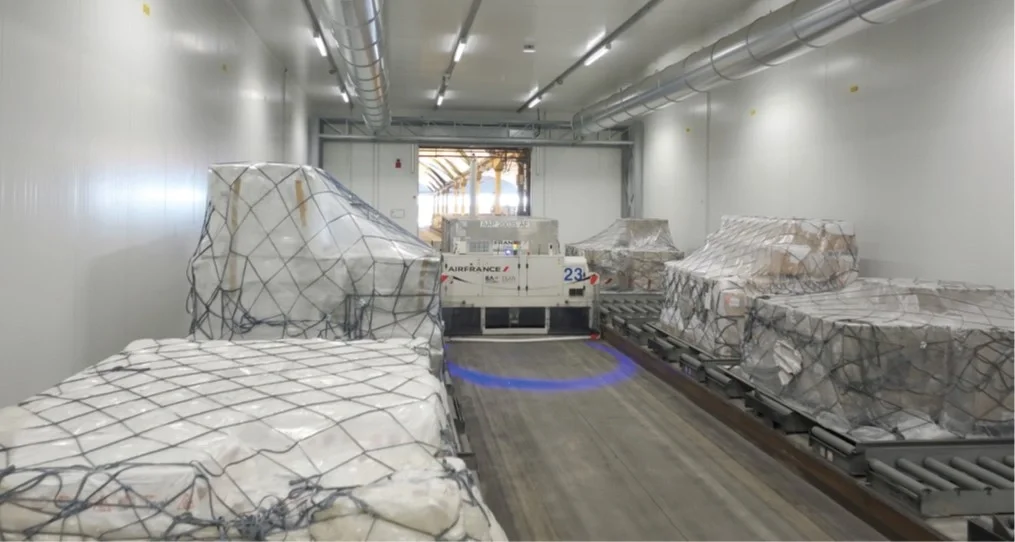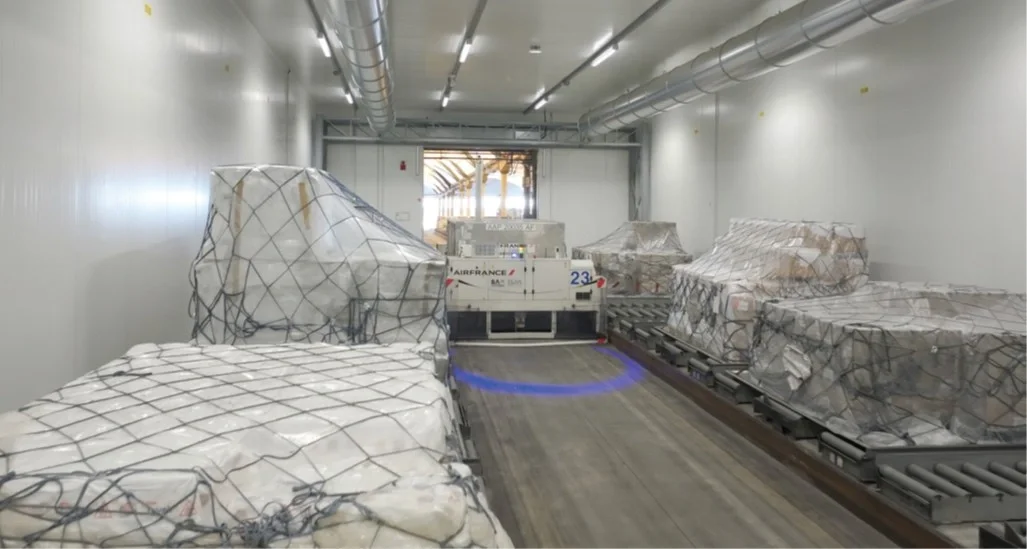Pharmaceutical spending is predicted to rise over the next decade, as ageing populations and a greater uptake of medical services in newly emerging markets combine to create a potential bonanza for groups involved in the sector. But at the same time, regulatory scrutiny of the industry is increasing, and becoming stricter, with expensive new legal requirements like the EU's MD directive looming on the horizon.
Drug companies are therefore searching for reliable transportation enterprises, ones who can show that they are compliant with new procedures while still keeping costs low. Enter Air France KLM Martinair Cargo. A specialist air freight company with a fleet of 168 long-haul aircraft and a worldwide network of 457 destinations, the company has flown over 1.1 million tons of cargo and has a warehouse capacity of up to 208,000m². Experienced in transporting all types of freight, Air France KLM Martinair Cargo is especially keen on expanding its commitment to the pharmaceutical sector.
"Currently, 10% of our revenues come from pharmaceutical clients, especially from transporting sensitive pharmaceuticals within the cool chain," says Enrica Calonghi, global head of pharmaceutical logistics at Air France KLM Martinair Cargo. "That is important to underline, as our customers also choose to list their pharmaceuticals as general cargo.I think it is important to mention this, because if the rest of the air freight sector wants to continue playing an important role in medical transport, then they really need to look at freightmovingprocedures, at the cool-chain itself and at the need to avoid excursions during transportation."
Old hand with a brand-new approach
Before Calonghi was appointed Air France KLM Martinair Cargo's global head of pharmaceutical logistics, she spent several years managing the company's commitments in Spain, Portugal, Italy and global role as Key Account. If her career has taught her anything, it is that transparency in the pharmaceutical logistics chain is of vital importance. She is fully cognizant of the responsibilities she has in maintaining it throughout the medical supply chain. "A year ago, before I started this job, I did some interviews for myself of customers in the sector," explains Calonghi. "Transparency was the most common term cited in their descriptions of what they wanted from an air transport firm. So, we started designing what our road map for the next three years with that in mind."
It was to this end that Air France KLM Martinair Cargo rolled out temperature information to clients during transportation. "That has been very well received," says Calonghi. "Additionally, we will role out additional information that will help our shippers in the pharmaceutical industry select the right airport. Currently, we're looking at harnessing the blockchain and the internet of things (IoT) to enhance the transparency of the shipping process. "This commitment is complemented by Air France KLM Martinair Cargo's certification by the International Air Transport Association (IATA) as compliant with the standards of its Center of Excellence for Independent Validators in Pharmaceutical Logistics (CEIV Pharma). A programme setup to address the industry's need for security and efficiency in aviation transport. In CEIV Pharma, IATA has created the first globally consistent and recognised pharmaceutical product handling certification. Calonghi's company was quick to adopt it, as an airline and at its two hubs, Amsterdam Airport Schiphol and Paris Charles De Gaulle Airport. This means that Air France KLM Martinair Cargo is certified for activity on-board its flights and at its hubs.
"IATA plays a big role in maintaining the name and feasibility of air transportation," says Calonghi. "The introduction of the CEIV programme offers us standardisation and efficiency gains across the sector. That, I believe, is just the starting point. It is up to each and every airline to ensure that it exceeds those standards, as we have, by making continual improvements to their processes and boost cooperation between it, ground support companies, freight forwarders and shippers."
To that end, Air France KLM Martinair Cargo is part of a CEIV-certified association, 'Pharma Gateway Amsterdam', together with the operators of Amsterdam Schiphol Airport, local airlines, forwarders and ground handling agents. The company has also introduced a new digital logistics suite for its clients, myCargo. "With this platform, we can provide a personalised, secure logistical overview for our customers," explains Calonghi. "Here, they can find all of our schedules, booking options, as well as track and trace shipments."
Practical makes perfect
With myCargo, the goal has always been to deliver the information that clients want in the most practical way available. "Efficiency for me is partly about making sure that the moment you have the data available, you don't have to send an email to find it out, or have a long series of backand- forth conversations with people over the phone" says Calonghi. "For instance, we piloted and rolled out an option within myCargo that allowed our customers to see the price of conveying one type of cargo at a certain temperature to any destination and directly book if they so choose. "We want to make the platform the main point of entry for our customers, so they can get the transparency that they need and the information that they require."
And the market is responding. Pharmaceutical clients are flocking to Air France KLM Martinair Cargo to move their wares. Many of these customers are also willing to spend more, so as to absolutely guarantee inimitable quality during the transportation process.
We want to make the platform the main point of entry for our customers, so they can get the transparency that they need and the information that they require.
"With an ageing population in Europe and North America, and the growing diversity in medicine types, I do think the volume of pharmaceutical freight will increase in the near future," says Calonghi. "The most expensive pharmaceuticals will be shipped by air, too, especially in niche markets like personalised medicines."
Shipping pharmaceuticals isn't an easy job if you want to do it right, Calonghi admits. "It really requires attention and care from a lot of different parties involved in the chain, the right level of technologies and proper solutions in place so that we all help maintain the cool chain smoothly." Nevertheless, Calonghi is convinced that the company has discovered the right formula for an efficient supply line for pharmaceutical goods that guarantees quality. "We see a lot of other initiatives out there to do that right now, but with myCargo, I think we are the best in our class," she concludes.



